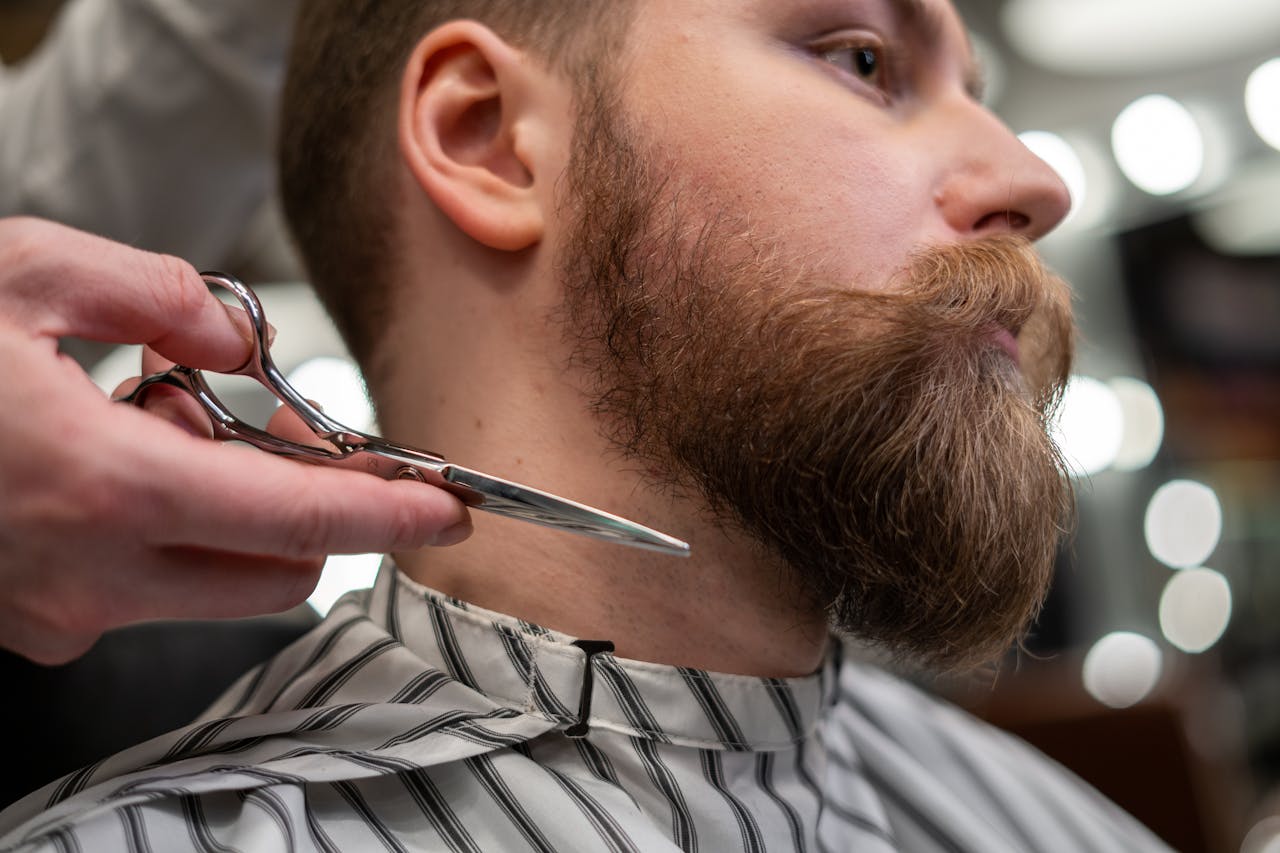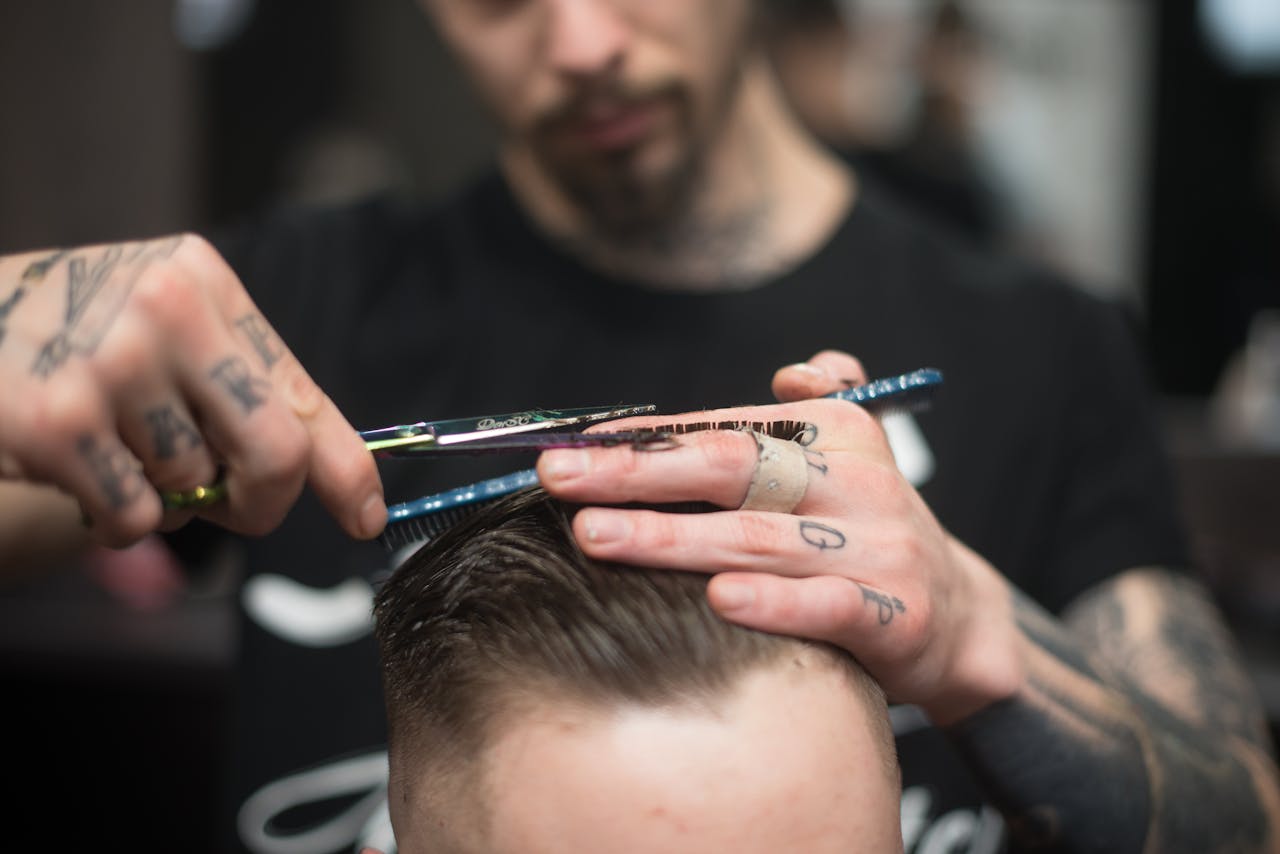Are you not quite happy with your beard growing slowly or thinning a little? No problem, you might try oils or serums right (or even some fancy supplement), but have you ever stopped to think about vitamin A may be the missing link in your beard growth puzzle? This crucial nutrient no longer just helps your normal health but performs a necessary function in the mobile regeneration and pores and skin fitness, each of which can be vital for an entire strong beard. Earlier studies present that nutrition and minerals can promote hair increase, subsequently weight-reduction plan A is not any exception. On this piece, we are able to discuss the technology at the back of vitamin A and its impact on beard increase in addition to a way you could get extra nutrition into your men’s grooming habitual so that no longer handiest do you advantage from it yourself but have suggestions for others too on how they can avail their personal complete healthy beards as well. we share briefly in bellow.
Why Vitamin A is Essential for Beard Growth
Vitamin A has great perception that is healthy for eye care and immune system, it’s great for beard growth. we share something you don’t know before:
Supports Hair Growth:
Vitamin A is essential for the normal shedding of your hair follicles leading to releasing new hair growth. Your beard hairs come from hair follicles, and how well those grow will determine how fast and full your beard. This has to do with its ability to accelerate cell turnover, the rate at which old cells are replaced with new ones. Quicker cell turnover healthies the follicles, promoting a hearty hair growth cycle in which each individual strand is prompted to develop out thicker and harder.
Promotes Sebum:
The natural oil, sebum, is produced by the sebaceous glands and it promotes beard hair strength and moisture. Sebaceous glands are responsible for sebum production and its activity is regulated by vitamin A. The first step in using beard oil is to know when do you need it, If your beard has been dry and brittle at times or even have flaking skin under the beard that indicates there are not sufficient sebum produced. Vitamin A promotes natural levels of sebum, which means your beard will be less prone to break and develop split ends.
Deficiency and Beard Health:
Low Vitamin A can also lead you to feel that your beard is dry, brittle, or even weak follicular activity leading to patchiness in the beard. A lack of vitamin A causes a form of trait known as “hyper keratinization,” when the skin surrounding the hair follicles becomes dirty, negatively influencing healthy hair development. Which is what makes Vitamin A a stress reliever for men with slow or irregular beard growth.
Comparison with Other Beard Vitamins:
Although various vitamins like Biotin (Vitamin B7), Vitamin E, and Zinc will promote beard growth, the difference with vitamin A is it aids skin health which supports hair follicles. Unlike biotin, which is concerned more with building the structure of hair (the stuff that actually hangs from follicles), or Vitamin E, known for its ability to increase circulation and thereby nourish hair growth indirectly, your skin and its follicles require a different approach — who better to provide that than Vitamin A? Others are own ability but, that’s our experience vitamin A is more beneficial for beard hair growth.
Benefits of Vitamin A for Facial Hair Health
Vitamin A has a few advantages when it comes to maintaining your beard through otherwise diet or grooming instructions. Now check the result:
Enhances Skin Health:
By honest of its antioxidant properties, Vitamin A helps to protect against oxidative stress (that can harm skin cells). Pollution and UV rays also act on the sebaceous gland deteriorating its quality, oxidative stress can harm one or more aspects of the hair follicle. Vitamin A combats free radicals, providing ideal conditions for healthier skin, and potentially resulting in a better environment for beard growth. It also minimizes inflammation of the skin, which can help ward off beard dandruff or type of irritation under facial hair.
Improves Circulation to Hair Follicles:
Since I always say that improving circulation is important to bringing nutrients and oxygenations to the hair follicles, vitamin A helps do this by keeping the capillaries intact. When blood flows without pot restriction, it merely suggests a lot more nutrients will get to the follicle, promoting quicker, additionally healthy hair development. By aiding circulation, each individual hair strand on your beard grows in uniformity with one another which translates to a bigger, complete beard.
Strengthens Hair Structure:
Vitamin A is essential for strong hair because it aids in the production of keratin, a hair protein. Vitamin A also aids keratin, which helps prevent brittle hair and split ends where typical strong bearded hair breaks down. Fuller, thicker strands are going to give you a fuller more creative beard but by being stronger your hair will be able to withstand itself and not need trimming for many months.
Protects Against Environmental Damage:
Vitamin A antioxidant properties let environmental factors such as pollution, dust and sunlight be a forgotten story. They can remove all the natural oils from your hair, making it break more easily. Vitamin A has properties of an antioxidant and works to strengthen hair and hinder the loss of moisture so that your beard can face environmental factors without getting dull or brittle.
How to Get Vitamin A for Beard Growth
Since we know how great it is, let us explore the best ways to increase the levels of Vitamin A in your body for optimum beard growth:
Natural Food Sources High in Vitamin A:
Dietary sources of Vitamin A is one of the safest and highly effective means that my promote enough availability. Beta-carotene is abundant in plant-based foods such as carrots, sweet potatoes, spinach, and kale. The human body can convert the beta-carotene it consumes into Vitamin A. In contrast, liver, eggs, and dairy products provide preformed Vitamin A that does not require a conversion step to be used by the body. Try to incorporate as many of these foods into your daily diet; a high fruit, vegetable and low-fat protein will naturally lift your Vitamin A intake.
Vitamin A Supplements:
If you are not able to get enough Vitamin A from your diet, vitamins make it easier as well. These exist as retinol (preformed Vitamin A) and beta-carotene (provitamin A). Although supplements are able to provide a concentrated dose, their use needs be done carefully since taking too many can lead to certain side effects. It is ideal to start a multivitamin that has Vitamin A, and then dose from there as needed and advised by notes to the provider. we provide enough information.
Topical Application with Beard Oils or Creams:
Some beard oils and skincare products include Vitamin A derivatives, such as retinol. These products deliver Vitamin A directly to your skin and hair follicles. Applying Vitamin A topically is a great way to target damage areas, especially if you have dry or patchy areas in your beard. Retinol-based products should be used little bit to avoid skin irritation, but they can significantly better for skin and hair health when used correctly.
Incorporate Vitamin A into a Balanced Routine:
Vitamin A is effective, however, its effectiveness can be greatly show results when combined with other beard-friendly vitamins such as Vitamin E and Biotin. Beard maintenance practices such as exfoliating on a regular basis to unclog pores, applying moisture, and massaging your beard in order to distribute natural oils and increase blood flow are needy. In terms of results with regards to beard growth, a daily routine with Vitamin A and a healthy diet and caring routine will produce great results.
Recommended Dosage and Potential Side Effects of Vitamin A
Safe Daily Intake Levels:
For adult men, the recommended daily intake of Vitamin A is about 900 micrograms (mcg). Exceeding this amount, especially through supplements, can lead to deadly. While it’s rare to over take on Vitamin A from food, supplements can quickly push you over the recommended levels, so it’s best to get most of your Vitamin A from natural sources. That’s the great for your grooming health.
Avoiding Overdose:
Overdose of Vitamin A can cause issues like dry skin, hair loss, and even nausea or liver damage in extreme cases.Indicates may also include vision changes,unsteadiness, or headaches. If you’re experiencing these symptoms during taking supplements, it is best for your health to take break and consult a professional.
Signs of shortage :
A lack of Vitamin A can lead to dry, flaky skin and slow or patchy beard growth. Deficiency signs can also include poor night vision and lowered immunity. In terms of beard health, Vitamin A deficiency might result in an bad beard or dry, brittle hair, so it’s important to knows these symptoms as soon as possible .
Consult a Healthcare Professional:
If you’re unclear about adding Vitamin A supplements to your diet plan, a professional can help you determine the right dosage. They can also suggest other vitamins to complement Vitamin A, creating a good approach to beard and overall health.
Other Vitamins and Nutrients to Boost Beard Growth
Biotin (Vitamin B7):
Biotin supports keratin production, an essential part of strong hair. Often included in beard-growth supplements, Biotin can help strong hair structure, making beard strands thicker and reducing breakage.
Vitamin E:
Known for its antioxidant properties, Vitamin E help blood flow to hair follicles, delivering important nutrients and oxygen. It can be found in nuts, seeds, and green leafy vegetables.
Zinc:
Essential for cell repair and the growth of new hair. It helps make safe beard hair from thinning and is often used with other vitamins for optimal beard health.
Lifestyle Tips for Optimal Beard Health:
Besides vitamins, lifestyle factors like enough sleep, hydration, and avoiding smoking also promote a fuller, healthier beard. By maintaining a balanced lifestyle, you set the stage for these nutrients to work effectively.
Conclusion
Vitamin A might be just the boost your beard needs to reach its fullest potential. From improving skin health to strengthening hair follicles, Vitamin A has an important role in the journey toward a good thicker, healthier beard. You enter it through diet, supplements, or grooming products, making Vitamin A part of your beard care routine can lead to great improvements in growth and quality. Ready to take your beard growth to the next level? Start incorporating Vitamin A today and watch your beard in better condition. For more beard care insights and expert advice, explore our additional resources and keep growing!




Pingback: What Are the Best Vitamins for Beard Growth in 2024?